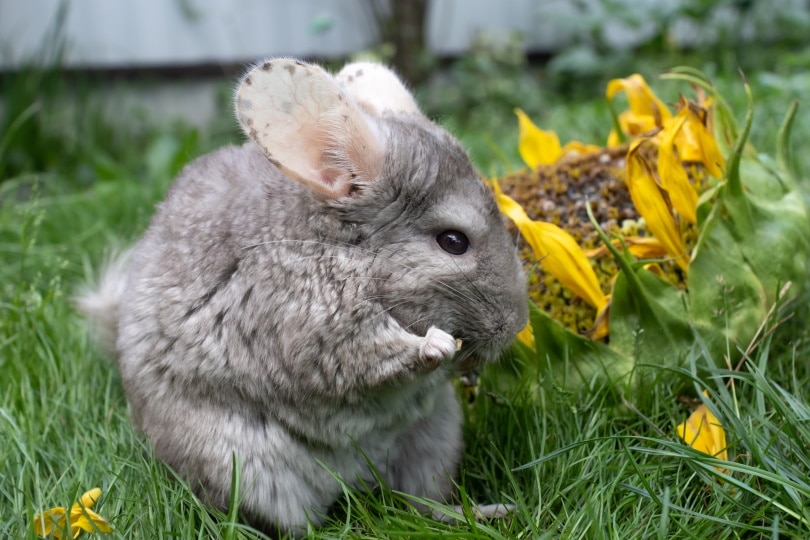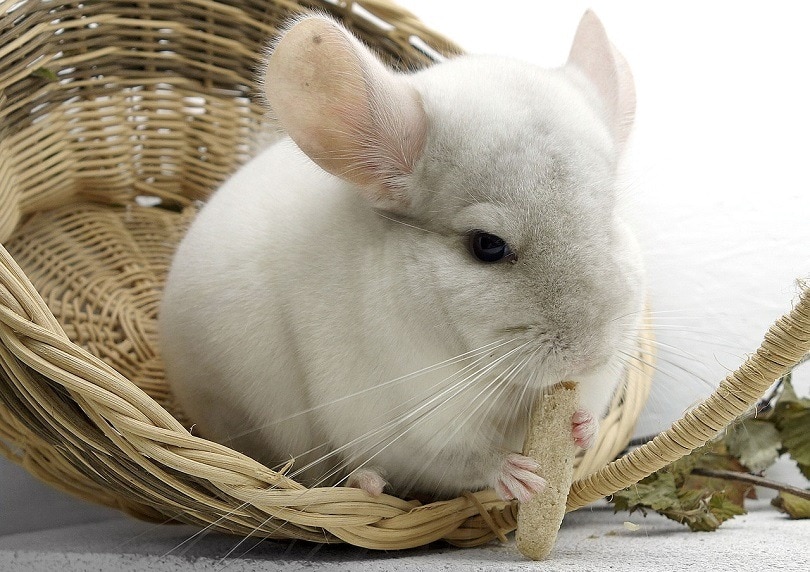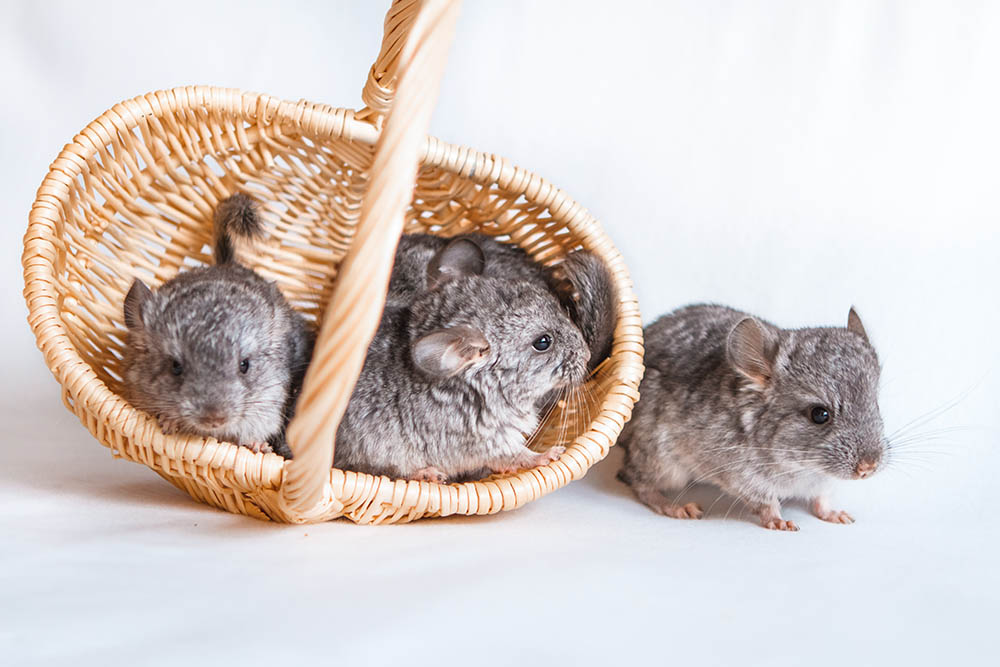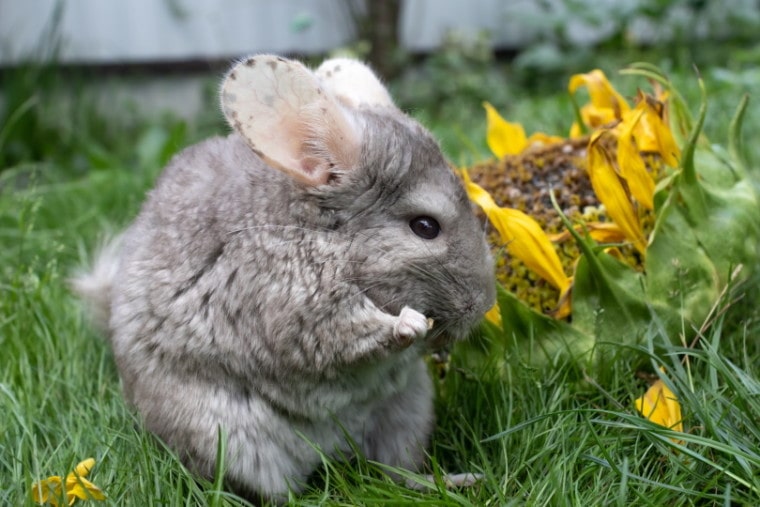
Chinchillas make good pets for those owners that are well-aware of their needs before bringing home one of these furry rodents. Originally hailing from the Andes Mountains in Chile, these mammals make great pets if they are socialized properly and have an adequate habitat to keep them physically active and healthy. Like any pet, chinchillas have their own unique needs and are considered an intermediate pet in terms of care, meaning they are harder to care for than the average pet but aren’t the most difficult pet to take of daily. We’ll break down some of their basic care needs in this article to help you determine if a chinchilla is the right pet for you.
Proper Chinchilla Care Basics
Chinchillas live anywhere from 10 to 20 years when cared for properly. They have some very specific needs in terms of habitat, bathing, and nutrition. We have compiled a short list of the basics of chinchilla care to help you determine if a chinchilla is the pet for you.
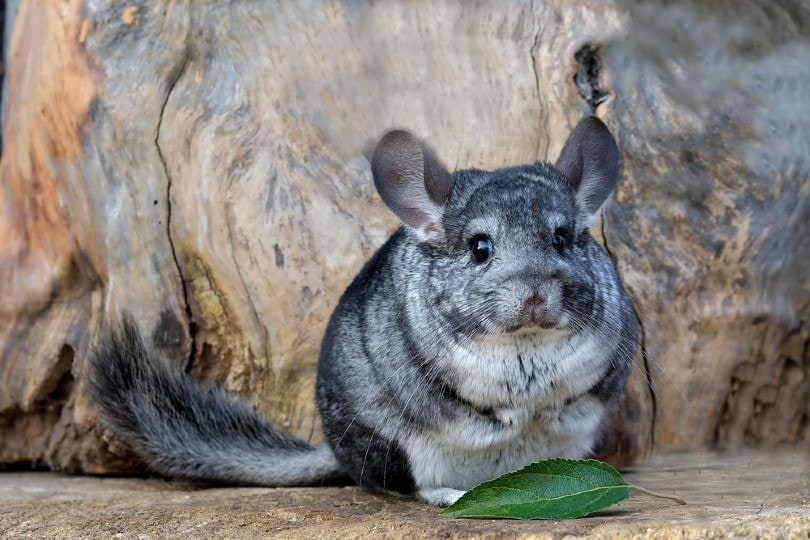
Chinchilla Habitats
Chinchillas need a multi-level large wire cage with a plastic bottom to avoid irritating their feet. They’ll need good bedding made from pelleted or shredded paper products, pine shavings, or reclaimed paper fibers. Chinchillas need a nesting box for sleeping. They will need at least one hiding place, preferably more, in their habitat so they can run away and hide when they feel scared. The cage should be kept in a quiet place in the home and the temperature should be regulated to keep the chinchilla from overheating. Their cage will need to be cleaned weekly to keep them happy and healthy.
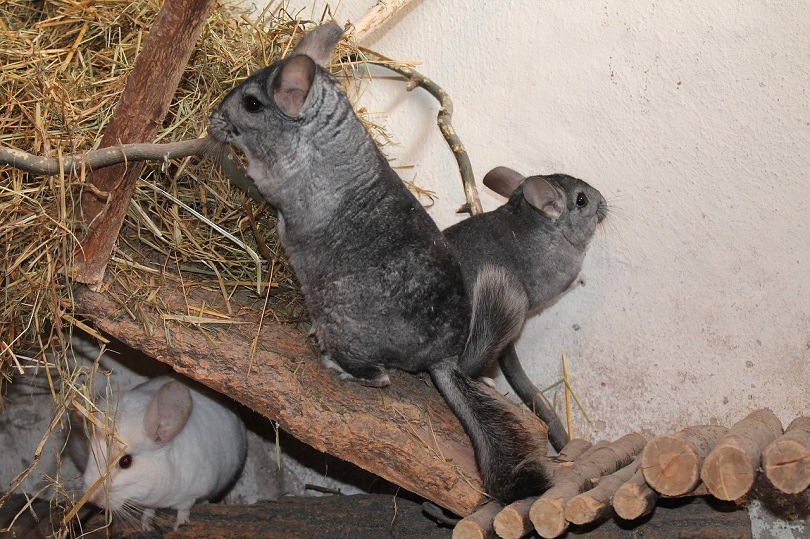
Nutrition
Chinchillas will need to be fed 1 to 2 tablespoons of commercial chinchilla pellet food each day. They will also need to be provided with fresh water daily. They have teeth that can grow 2 to 3 inches per year and will need unlimited hay every day to gnaw on to keep their teeth from growing too long and causing dental issues. Chinchillas will also need hard objects to gnaw on to encourage chewing and to keep their teeth naturally worn down. Branches from certain fruit trees, such as peach, apple, and pear, are considered non-toxic for chinchillas and are perfect for chewing. They have a sensitive gastrointestinal tract and it is not recommended that they receive treats.
Bathing
Chinchillas have 60 hairs per follicle to help them stay warm in the colder high altitudes of their natural environment in the Andes mountains. They have naturally oily skin, and a dust bath is how they keep their fur soft and free of excess oils. Use a commercial dust bath, such as Oxbow Poof! Chinchilla Dust Bath, 1 to 3 times a week in a large stable container so your chinchilla can roll around in the dust to get clean. It is not recommended that you give your chin a water bath as their thick fur will retain moisture, which can potentially cause hygiene and health issues for your pet.
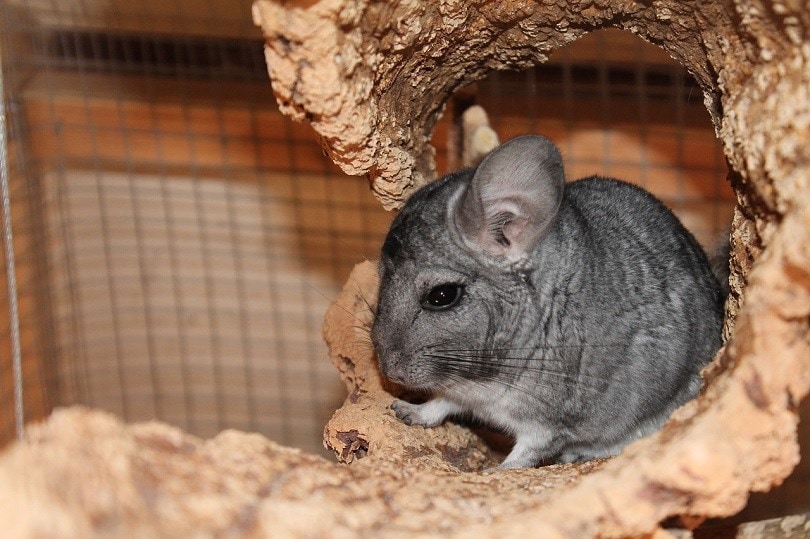
Temperament
Chinchillas should be socialized with humans from a young age to ensure friendliness, as well as to help them become comfortable with being handled. They are not recommended for younger children but usually do well with older children and teenagers who know about to be gentle and handle the chin with care.
Chinchillas are usually most active at dawn and dusk and will likely be more active in the evening hours. They can be very playful and will enjoy running around a well-appointed cage with ramps, tubes, and a plastic exercise wheel. They usually do well in pairs if introduced at an early age and they grow up together but may need to be separated if they begin fighting with each other.
Conclusion
Chinchillas are adorable rodents that can be good pets if they are taken care of properly and socialized to interact with humans. They are typically characterized as being intermediate in terms of the difficulty as a pet because they do have some specialized needs. Chinchillas need a suitably sized habitat with bedding, lots of hay, objects to gnaw on, weekly dust baths, and more. If you can think you can meet their daily and weekly needs, a chinchilla might be the pet for you.
Featured Image Credit: DenVIP, Shutterstock


